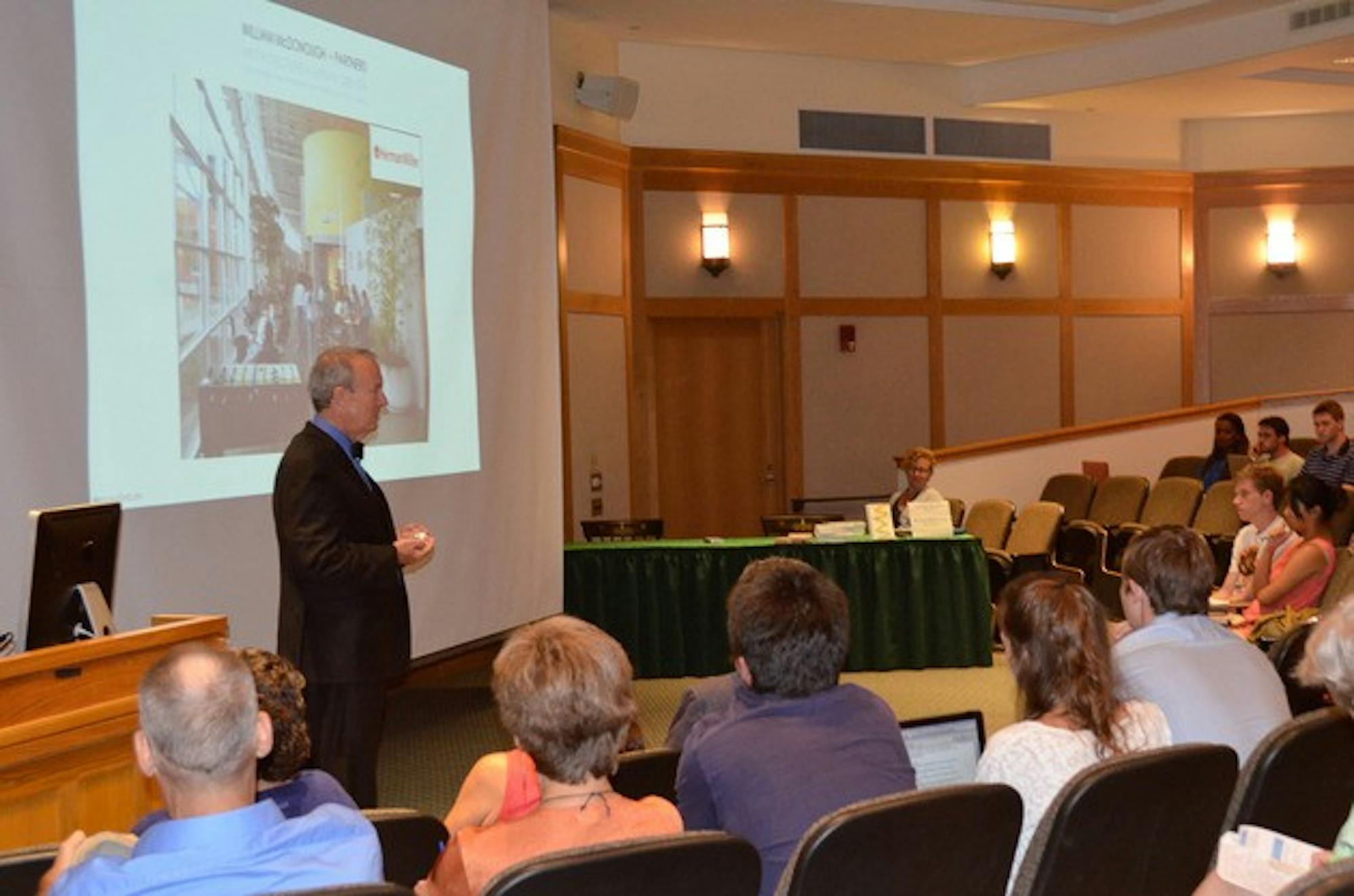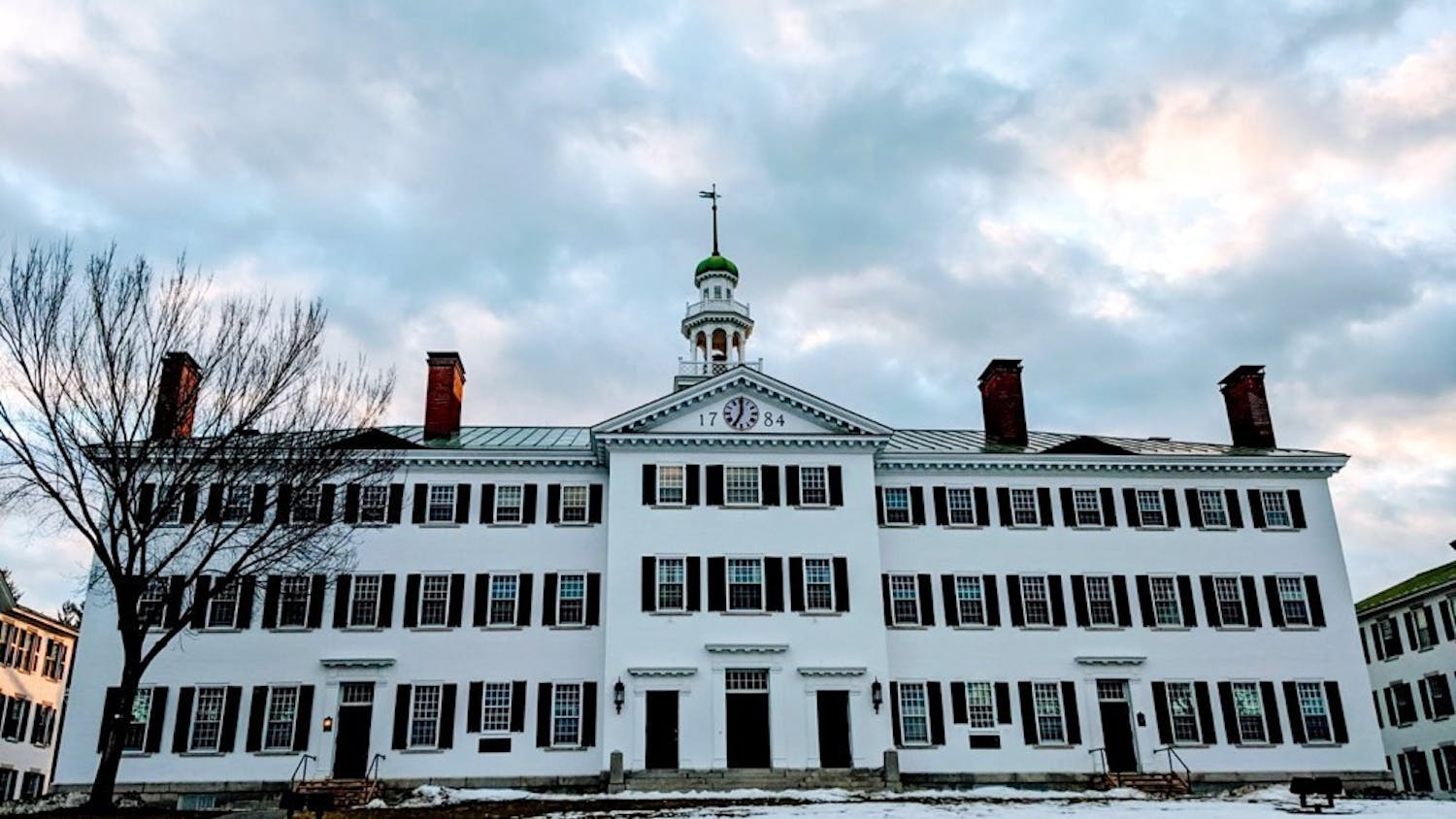McDonough is a pioneer of the "cradle to cradle" design philosophy, which compares the ideal cycle of materials to the circulation of nutrients through the food chain. Originally an architect, McDonough is well-known for his sustainable building designs.
In a blunt critique of current thinking, McDonough argued that many people have lost focus on sustainability goals and reusing materials.
"It's amazing that we design things today without thinking what's next," he said.
Engineers should aspire to create products that will eliminate harmful toxins and not negatively affect the environment, McDonough said, referring to the irony of Vegan organic chips packaged in non-recyclable bags containing toxic chemicals.
Discussing his design philosophy, McDonough questioned if things can be beautiful if they destroy the environment or worsen one's health.
McDonough called the 21st century an "ecological century" in which humans will be forced to confront environmental challenges.
He criticized the 1992 Earth Summit's emphasis on "eco-efficiency," which measured reductions in negative environmental impacts, and challenged this negative framing by asking, "Is being less bad good?"
Pointing to plutonium-free peanut butter, he said this structure set a dangerous precedent by providing companies with an excuse to ignore certain products' drawbacks.
McDonough emphasized optimizing positive impacts while minimizing the negative effects. He stressed the potential of a butterfly effect that small decisions can have monumental consequences.
Examining the trade-off between efficiency and effectiveness, he said people should begin doing the right things and worry later about how to do them the right way.
"Making the wrong thing perfectly is still perfectly wrong," McDonough said.
Buildings function like trees, emitting oxygen, sequestering carbon and creating food, he said.
His renovation of the iconic Ford River Rouge production facility included a living roof and natural water treatment facility that saved the company $35 million. McDonough showed audience members a photo of bird's eggs on the roof within a week of its completion, signifying the building's connection to the natural environment.
He also partnered with NASA to create its Sustainability Base, a building at Ames Research Center in Moffett Field, Calif., which applies the extreme sustainability principles necessary for a space station to a building on earth.
Currently working with Brad Pitt on the "Make It Right" project, McDonough hopes to rebuild sections of New Orleans devastated by Hurricane Katrina.
Though he recognizes that some may consider his vision utopian, McDonough said that people should constantly strive for improvement.
"It's going to take us all, it's going to take forever, but that's the point," he said.
Carrie Wolf '15, who is enrolled in a class on contemporary architecture, asked about his artistic approach to design.
"The buildings are so beautiful, but he's basing them on sustainability," she said. "He talked about how beauty is in the nature and how things that we are naturally drawn to are beautiful in and of themselves."
Studio art professor Karolina Kawiaka said she was excited by the opportunities created by alumni like McDonough.
"Doing better is not good enough," she said. "Moving to regenerative building is really inspiring."
With a son in the Class of 2017, McDonough said he will remain engaged with Dartmouth and the Upper Valley community.
McDonough's lecture was part of this summer's "Leading Voices in Energy, Sustainability and Security" series. He is the author of "The Upcycle: Beyond Sustainability Designing for Abundance."
Wolf if a former member of The Dartmouth staff.




